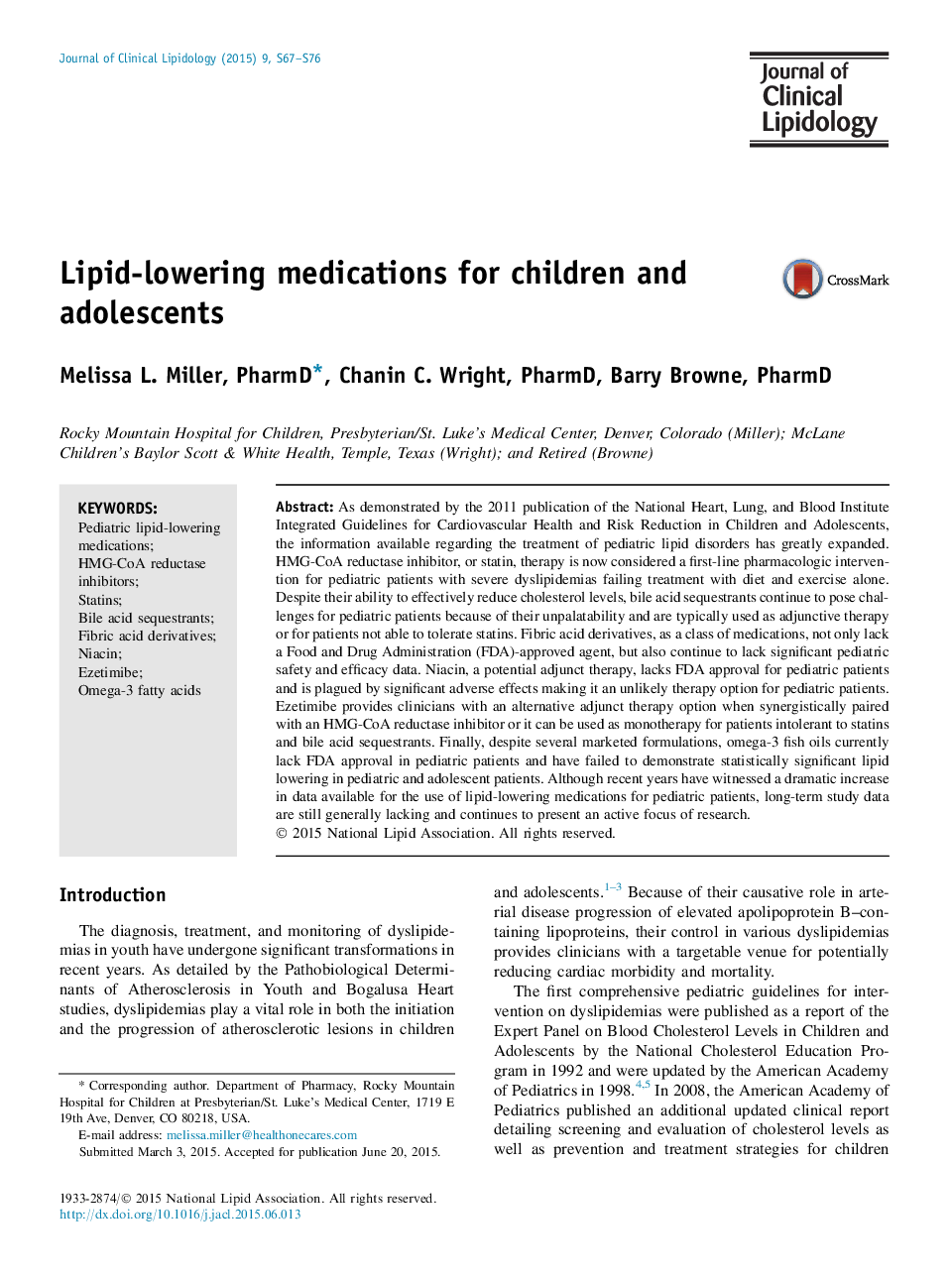| کد مقاله | کد نشریه | سال انتشار | مقاله انگلیسی | نسخه تمام متن |
|---|---|---|---|---|
| 2965814 | 1178772 | 2015 | 10 صفحه PDF | دانلود رایگان |
• Statins are first-line pharmacologic therapy for youth with severe dyslipidemias.
• Bile acid sequestrants pose challenges for pediatric patients due to unpalatability.
• Fibric acid derivatives lack significant pediatric safety and efficacy data.
• Niacin lacks FDA approval for youth and is plagued by adverse effects.
• Omega-3 fish oil use by youths failed to show significant improvements in lipids.
As demonstrated by the 2011 publication of the National Heart, Lung, and Blood Institute Integrated Guidelines for Cardiovascular Health and Risk Reduction in Children and Adolescents, the information available regarding the treatment of pediatric lipid disorders has greatly expanded. HMG-CoA reductase inhibitor, or statin, therapy is now considered a first-line pharmacologic intervention for pediatric patients with severe dyslipidemias failing treatment with diet and exercise alone. Despite their ability to effectively reduce cholesterol levels, bile acid sequestrants continue to pose challenges for pediatric patients because of their unpalatability and are typically used as adjunctive therapy or for patients not able to tolerate statins. Fibric acid derivatives, as a class of medications, not only lack a Food and Drug Administration (FDA)-approved agent, but also continue to lack significant pediatric safety and efficacy data. Niacin, a potential adjunct therapy, lacks FDA approval for pediatric patients and is plagued by significant adverse effects making it an unlikely therapy option for pediatric patients. Ezetimibe provides clinicians with an alternative adjunct therapy option when synergistically paired with an HMG-CoA reductase inhibitor or it can be used as monotherapy for patients intolerant to statins and bile acid sequestrants. Finally, despite several marketed formulations, omega-3 fish oils currently lack FDA approval in pediatric patients and have failed to demonstrate statistically significant lipid lowering in pediatric and adolescent patients. Although recent years have witnessed a dramatic increase in data available for the use of lipid-lowering medications for pediatric patients, long-term study data are still generally lacking and continues to present an active focus of research.
Journal: Journal of Clinical Lipidology - Volume 9, Issue 5, Supplement, September–October 2015, Pages S67–S76
